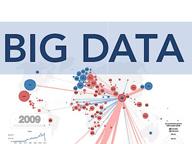Faculty News
—
In an op-ed, Profs Roy Smith & Ingo Walter discuss the implications of US sanctions on global banks
—

Excerpt from The Wall Street Journal -- "The U.S. prosecution of a major international bank for evading sanctions has changed the game. BNP allegedly stripped out identifying information from wire transfers to disguise sanctioned countries as origins or destinations of international payments. By raising the cost of violating the rules to significant levels, the Justice Department has ensured that U.S. sanctions will be complied with and effective."
Faculty News
—

Excerpt from The Wall Street Journal -- "The U.S. prosecution of a major international bank for evading sanctions has changed the game. BNP allegedly stripped out identifying information from wire transfers to disguise sanctioned countries as origins or destinations of international payments. By raising the cost of violating the rules to significant levels, the Justice Department has ensured that U.S. sanctions will be complied with and effective."

















